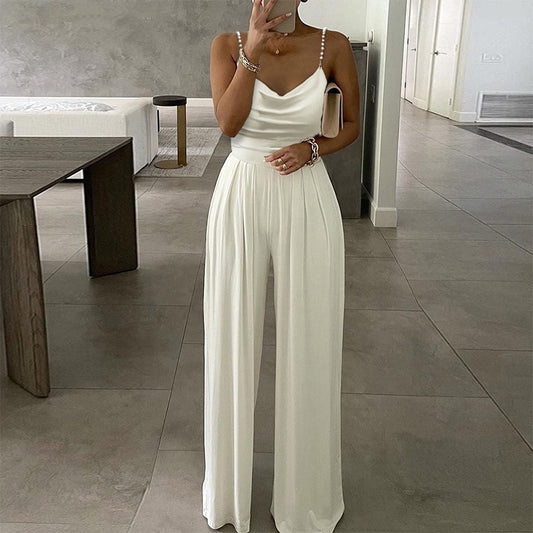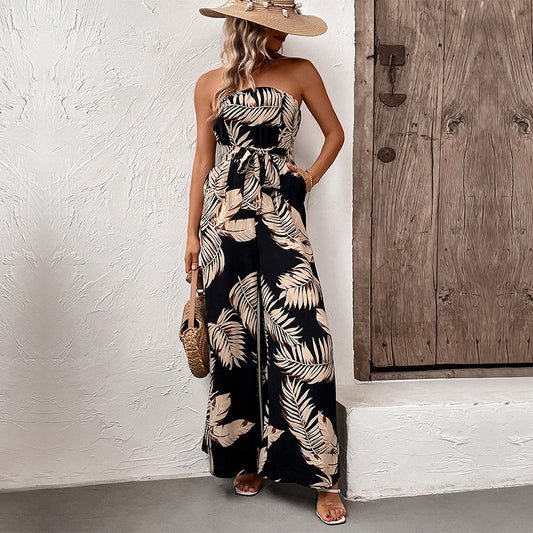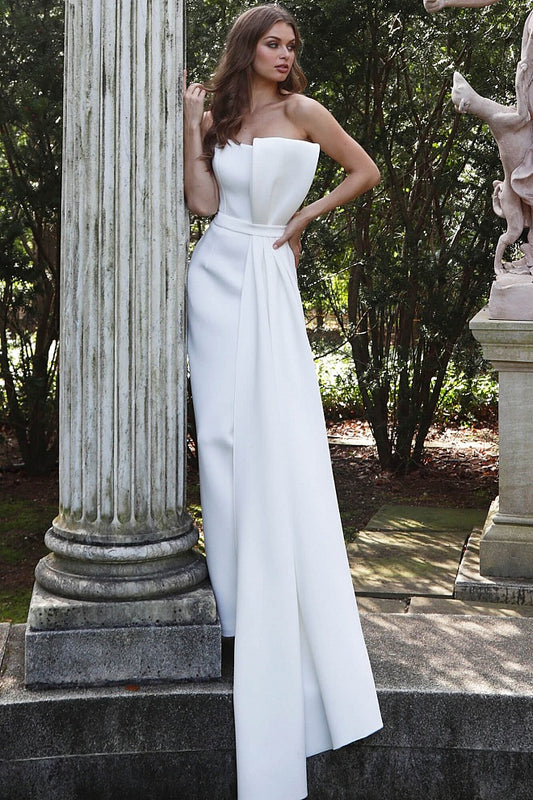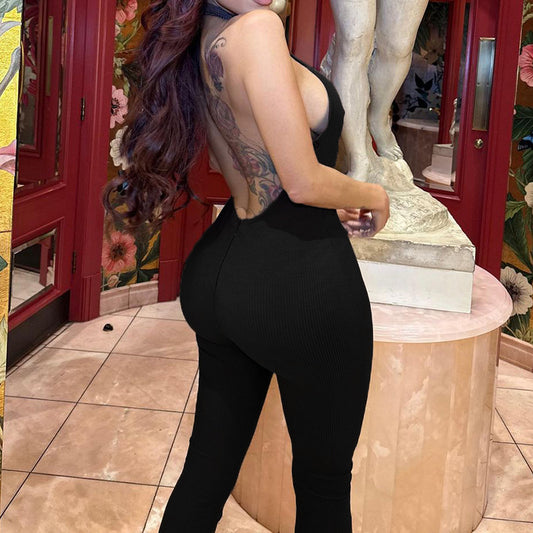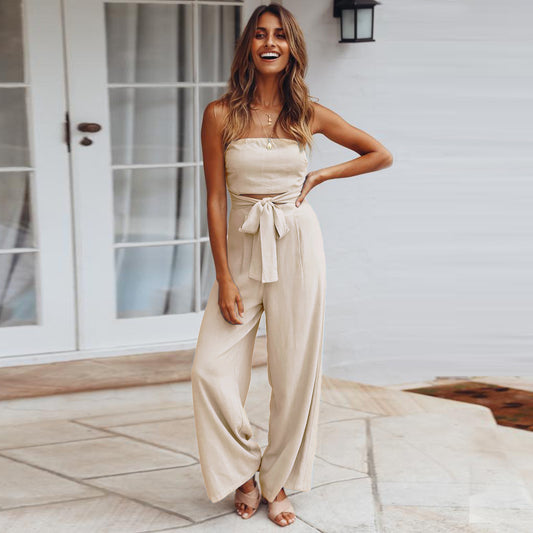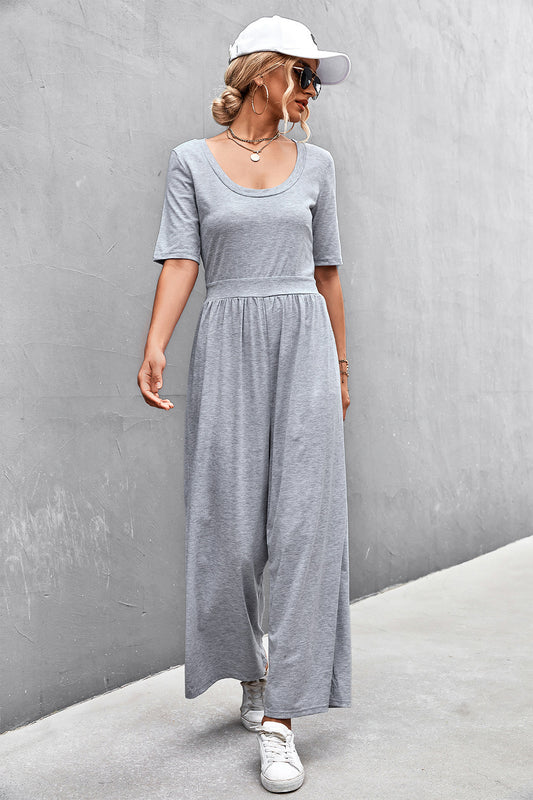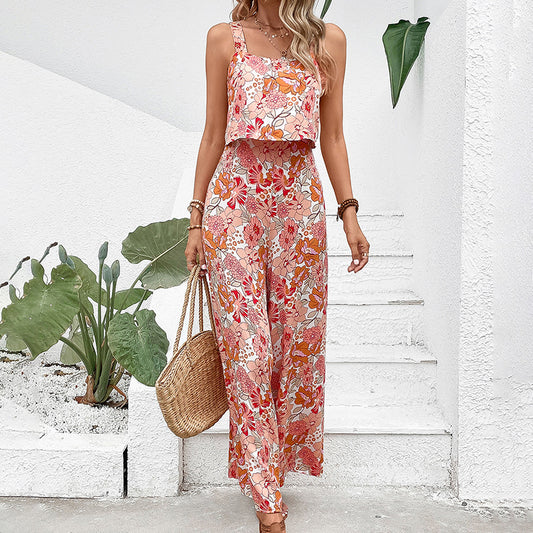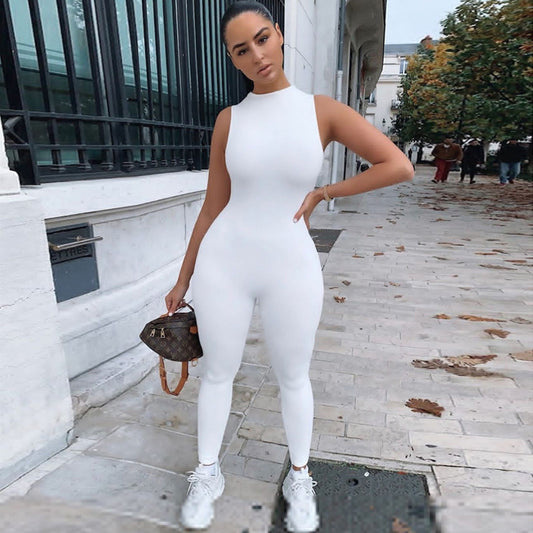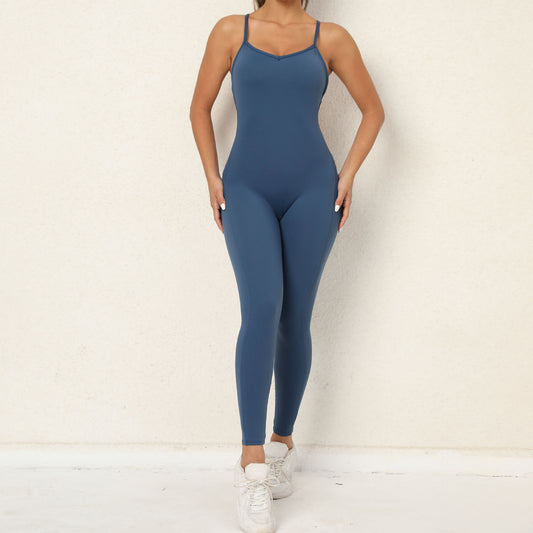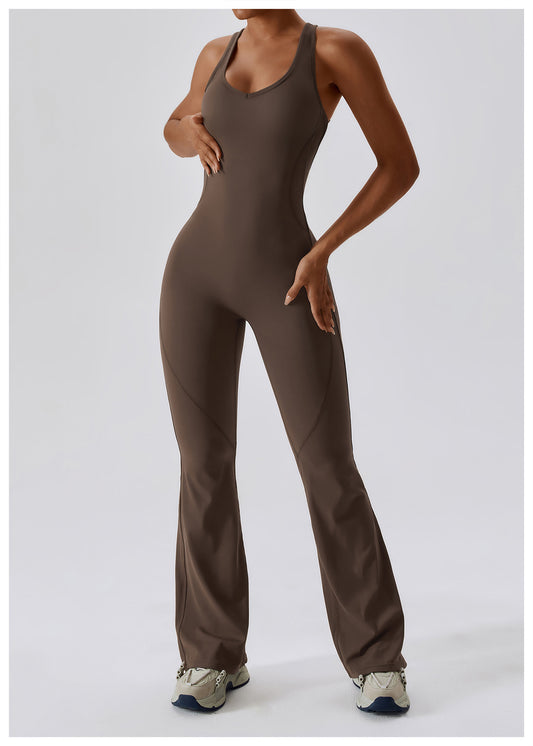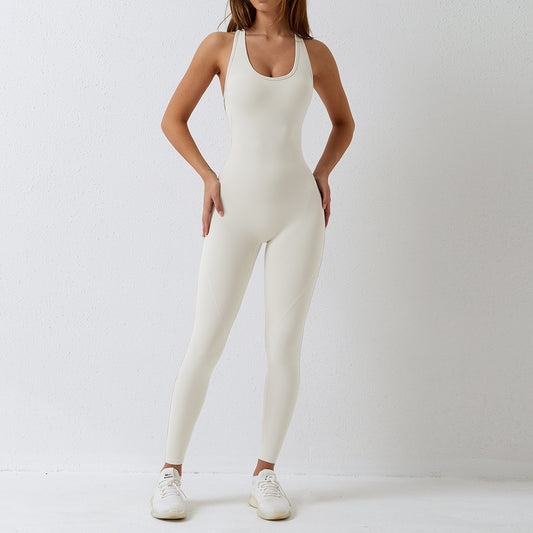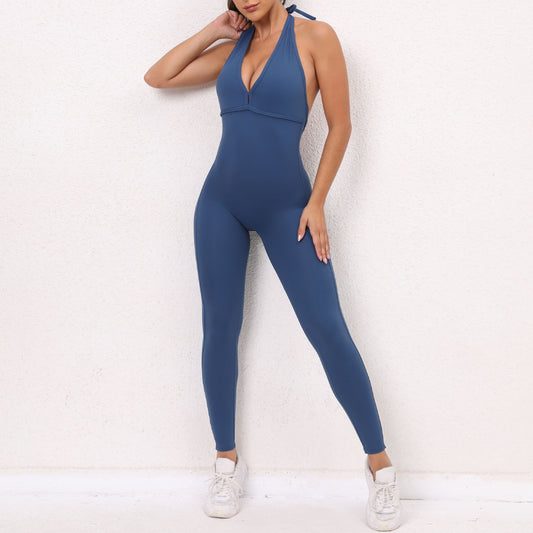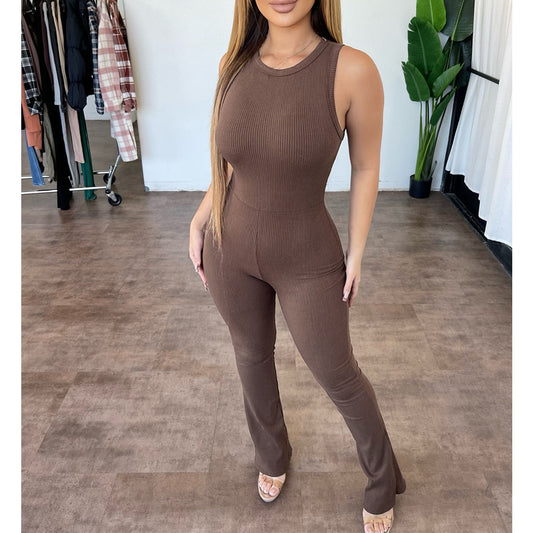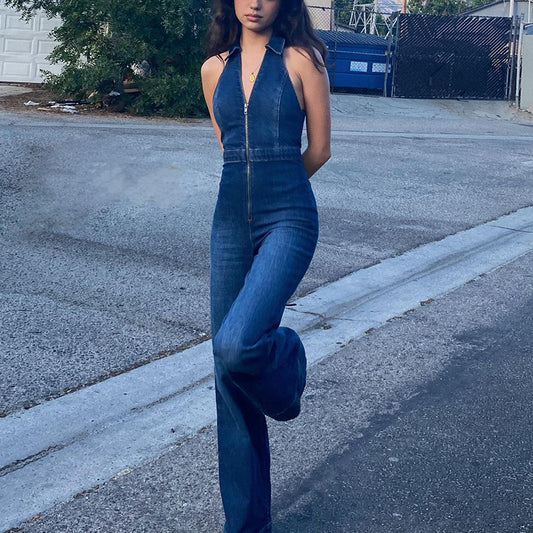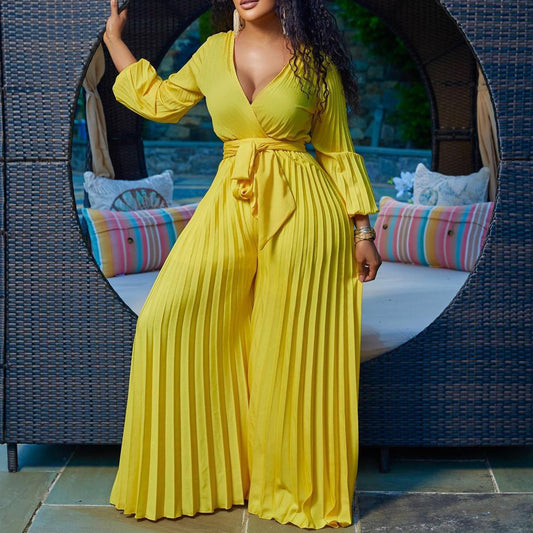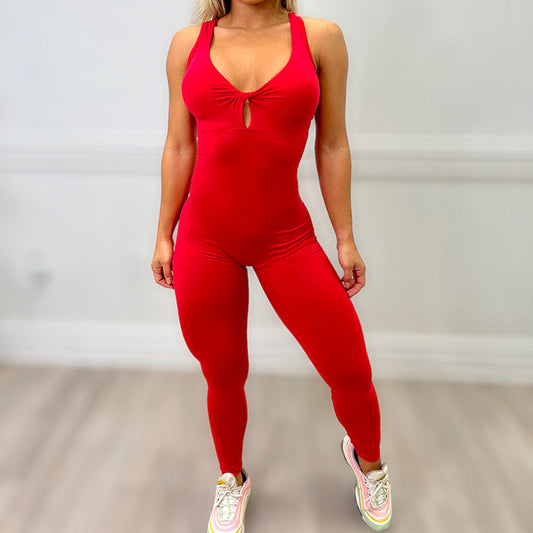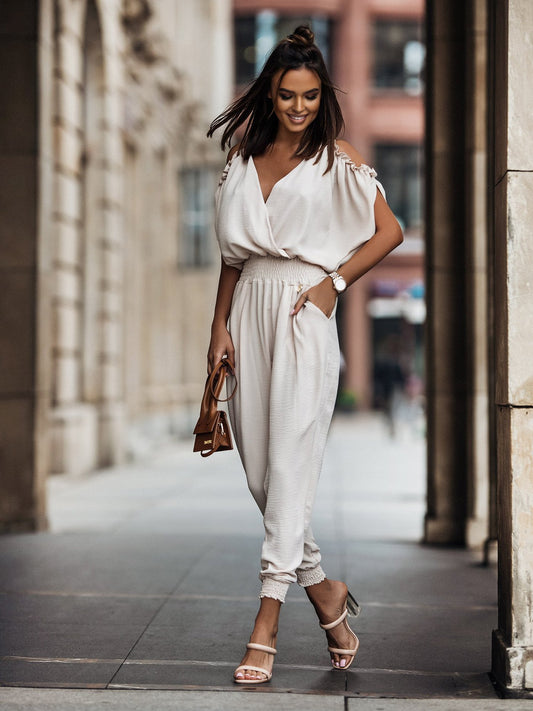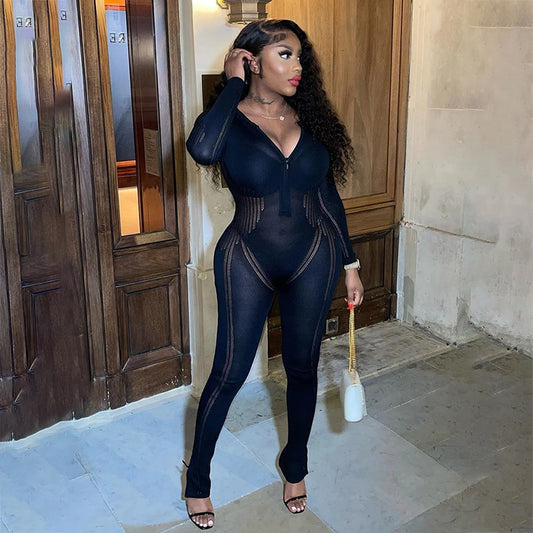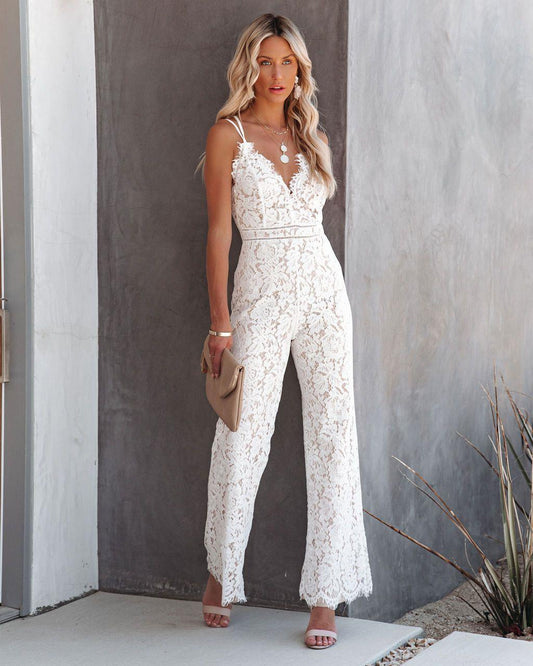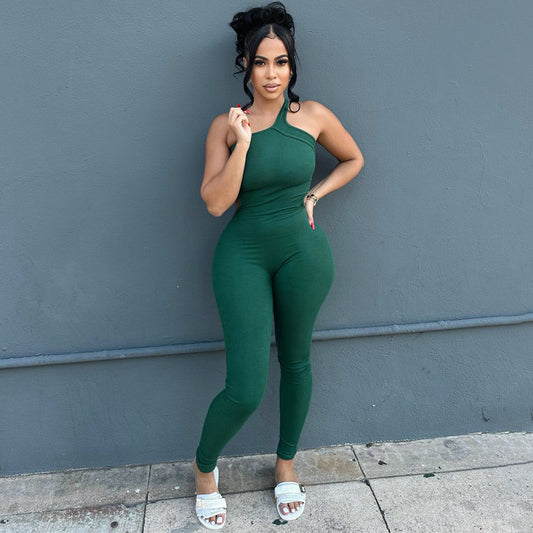-
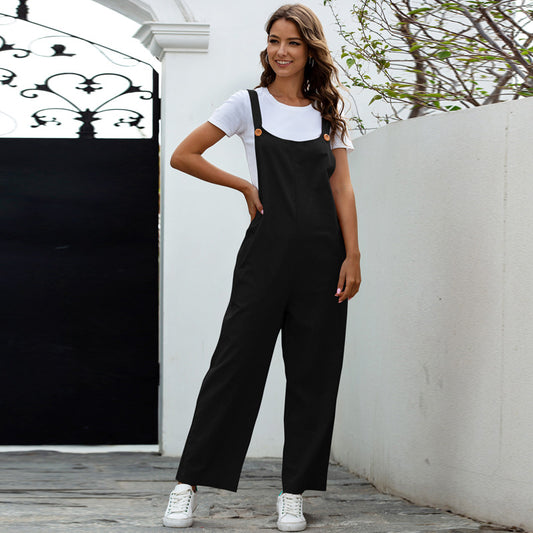
 Sold out
Sold outRetro Casual Long Suspender Jumpsuit
Regular price $35.00 USDRegular priceUnit price / per$35.00 USDSale price $35.00 USDSold out -
Pearl Suspender Wide Leg Sleeveless V-neck Backless Trousers Jumpsuit
Regular price $45.00 USDRegular priceUnit price / per$45.00 USDSale price $45.00 USD -
Casual Loose Denim Brace Trousers
Regular price $55.00 USDRegular priceUnit price / per$55.00 USDSale price $55.00 USD -
Loose Fitting Overalls Retro Washed Raw Hem Wide Legs Jumpsuit
Regular price $69.00 USDRegular priceUnit price / per$69.00 USDSale price $69.00 USD -
Printing Tube Top Jumpsuit
Regular price $48.00 USDRegular priceUnit price / per$48.00 USDSale price $48.00 USD -
Banquet Slim Fit Trousers Jumpsuit
Regular price $49.00 USDRegular priceUnit price / per$49.00 USDSale price $49.00 USD -
Product Sexy Tight Backless Halter Trendy Hip Looking Jumpsuit
Regular price $34.00 USDRegular priceUnit price / per$34.00 USDSale price $34.00 USDSold out -
Casual Fashion Set Sexy Backless Slim Fit Jumpsuit
Regular price From $42.00 USDRegular priceUnit price / per$42.00 USDSale price From $42.00 USD -
Short Sleeve U Collar Loose Wide Leg Jumpsuit
Regular price $36.00 USDRegular priceUnit price / per$36.00 USDSale price $36.00 USD -
Printed Square Collar Sling Vest Pants Vacation Women Jumpsuit
Regular price $43.00 USDRegular priceUnit price / per$43.00 USDSale price $43.00 USDSold out -
Sleeveless Slim High Top Sports Jumpsuit
Regular price $30.00 USDRegular priceUnit price / per$30.00 USDSale price $30.00 USDSold out -
V neck No Embarrassment Line Yoga Fitness Jumpsuit
Regular price $59.00 USDRegular priceUnit price / per$59.00 USDSale price $59.00 USD -

 Sold out
Sold outSolid Color Yoga Sports Jumpsuit
Regular price $24.00 USDRegular priceUnit price / per$24.00 USDSale price $24.00 USDSold out -
Quick Drying Skinny Yoga Jumpsuit
Regular price $70.00 USDRegular priceUnit price / per$70.00 USDSale price $70.00 USD -
Tight One Piece Aerial Beauty Back Yoga Clothes
Regular price $65.00 USDRegular priceUnit price / per$65.00 USDSale price $65.00 USD -
Lace up One Piece Quick Drying Skinny Yoga Pants Breathable Jumpsuit
Regular price $58.00 USDRegular priceUnit price / per$58.00 USDSale price $58.00 USD -
Comfortable Sleeveless Zipper Slim Fit High Waist Micro Pull Jumpsuit
Regular price $40.00 USDRegular priceUnit price / per$40.00 USDSale price $40.00 USD -
Slim Fit Slimming Zipper Sleeveless V-neck High Waist Retro Denim Jumpsuit
Regular price $80.00 USDRegular priceUnit price / per$80.00 USDSale price $80.00 USD -
Summer V neck Sexy Lace up Pleated Wide Leg Jumpsuit
Regular price $62.00 USDRegular priceUnit price / per$62.00 USDSale price $62.00 USD -
One Piece Yoga Sleeveless Workout Training Wear
Regular price $68.00 USDRegular priceUnit price / per$68.00 USDSale price $68.00 USD -
V neck Pocket Elastic Waist Casual Jumpsuit
Regular price $45.00 USDRegular priceUnit price / per$45.00 USDSale price $45.00 USD -
All Match Striped Knitted Long Sleeve Jumpsuit
Regular price $64.00 USDRegular priceUnit price / per$64.00 USDSale price $64.00 USDSold out -
Sexy Elegant Women Clothing Lace Mid Waist Casual Smooth Lining Jumpsuit
Regular price $52.00 USDRegular priceUnit price / per$52.00 USDSale price $52.00 USD -
Solid Color Tight Single Shoulder Suspender Sports Fitness Jumpsuit
Regular price $30.00 USDRegular priceUnit price / per$30.00 USDSale price $30.00 USDSold out
Collection: Jumpsuit
Jumpsuit: A Versatile One-Piece Outfit
A jumpsuit is a single-piece garment that combines a top and bottom in one design. Many people choose it for comfort. Others appreciate its modern look. Different fashion sources describe this piece as a handy option for those who want style without the fuss of mixing multiple items. There are frequent questions about what a jumpsuit is, how it varies from other clothing, and when it is most suitable. Below, you will find short answers to those concerns, followed by more details about its history, key materials, and how to wear it.
- What is a jumpsuit? It is a garment where the upper part (like a blouse, shirt, or tank) is connected to trousers or shorts in a single piece.
- Which types are common? Many fashion sources mention formal, casual, athletic, evening, and work-themed designs, each with unique fabrics and cuts.
- Who can wear it? Most body types can wear a jumpsuit if the fit is correct. The style can vary by age or personal taste.
- In which settings can it be worn? It fits social events, offices with relaxed dress codes, fitness routines, and dressier occasions, based on how it is styled.
The rest of this article will explain these points in detail. You will see how the jumpsuit evolved, how it can be paired with different accessories, and how to look after it.
Early Days and Growth
In past decades, the word “jumpsuit” was linked to gear worn by skydivers. Back in the 1930s, pilots and parachutists needed one-piece outfits to stay safe from wind and cold air. Over time, these suits also showed up in car workshops and factories. People in those fields needed clothes that were easy to move around in and could protect them.
During the 1960s and 1970s, designers saw that a jumpsuit could be stylish. Musicians and actors wore shiny or bright versions on stage, attracting plenty of attention. The design kept evolving. Some had wide legs and a bohemian vibe. Others hugged the body and featured a sleek shape. Today, many people still prefer a jumpsuit because it offers both ease and a unique look.
Main Styles and Uses
Fashion experts and retailers often point to five broad styles of jumpsuits:
-
Dressy Jumpsuit
These often have long legs and use richer fabrics such as silk or satin. They can replace cocktail dresses for parties or formal dinners. A small clutch and elegant heels can complete the look. -
Casual Edition
Made from cotton or polyester blends, these pieces are perfect for everyday wear. Some have short sleeves and come in light shades, making them comfortable in warm weather. -
Sports-Style Jumpsuit
This type targets workouts or dance sessions. It contains spandex or lycra, offering stretch and flexibility. Reports mention a 12% rise in sales for athletic versions last year. -
Work Jumpsuit
Linked to mechanics and certain industrial jobs. It provides an all-in-one uniform that shields the body and allows free movement. In many areas, it remains standard in workshops. -
Evening Jumpsuit
Designed for special events. They might have open shoulders, decorative trims, or bold cuts. Market data shows an 8% boost in interest over two years for jumpsuits aimed at formal events.
Each variety suits different goals. Some people like an easy, relaxed piece for daily wear. Others want a polished version for date nights or high-profile gatherings.
Common Materials and Fiber Content
Several websites list similar textile choices in jumpsuits:
-
Cotton
Found in about 45% of casual and workout models. It is breathable, easy to wash, and comfortable on hot days. -
Polyester
Around 30% of jumpsuits use this synthetic. It helps clothes dry faster and wrinkle less, especially when blended with other fibers. -
Elastane (Spandex, Lycra)
Included in 2–10% of many jumpsuits. It offers stretch, so the garment fits the body better. -
Viscose
Common in dressier designs. It drapes nicely, adding a soft look to many silhouettes. Some brands say it covers 15% of high-end items. -
Silk and Satin
About 5% of the market. Often used for formal or eye-catching designs, creating a luxurious feel. -
Denim
Found in casual jumpsuits, often with short legs. Perfect for laid-back days, especially in spring and summer.
Choice of fabric has a big effect on appearance. Cotton suits warm days, while polyester blends work better for sports. Silk or satin jumpsuits lean toward formal settings.
Shades and Prints
Fashion pages discuss both subdued and bold colors for jumpsuits:
- Black is the top choice for evening or formal events. It makes up about 35% of sales in that segment.
- Navy blue and gray show up in business-friendly designs. They look neat and professional.
- Pastel tones, such as soft pink or pale mint, account for around 20% of summer lines.
- Floral or tropical prints cover roughly 15% of casual ranges.
- Neon shades and geometric patterns add up to about 5%. They suit those who enjoy more daring style.
Buyers usually pick colors that match the occasion or align with personal preferences. This helps them feel confident in a single-piece ensemble.
Size and Fit
Most manufacturers try to accommodate various body types. They provide:
-
Standard Sizing (XS–XL)
This range targets many builds. Retailers often post detailed charts to help shoppers find the right fit. -
Extended Measurements (XXL–4XL)
Some brands include these sizes in a few of their jumpsuits. It gives a more diverse set of options. -
Petite Lines
Designed for shorter frames. The legs and waist are scaled to avoid bunching or extra fabric. -
Tall Collections
Made for people with longer legs and arms. The patterns are elongated so the garment fits well.
Reports say about 60% of returns happen because the waist or bust does not fit properly. Shoppers should check measurements carefully, especially with fabrics that are not very stretchy.
Suitable Situations
Jumpsuits work in many scenarios:
-
Daily Outings
Cotton or denim pieces can be worn to low-key offices or cafes. -
Night Events
More glamorous versions may have dramatic sleeves or lace insets, making them great for galas or upscale dinners. -
Beach and Warm Days
Short-leg jumpsuits in airy fabrics are perfect for hot weather. -
Fitness and Movement
Stretchy suits with enough elastane can be used for yoga or dance classes. -
Parties and Celebrations
Models with sequins or bold details are popular for weddings or birthdays.
A loose shape feels relaxed, while a fitted design creates a sleek profile. Some workplaces even permit refined jumpsuits as an alternative to typical business wear.
How to Style with Extras
Many fashion sources recommend accessories to add flair:
-
Belts
A wide belt can define the waist in a relaxed jumpsuit. A thin belt in a bright color can stand out. -
Jewelry
Simple bracelets and necklaces suit office outfits, while large earrings or statement pieces work well for evening events. -
Footwear
Heels lengthen legs in a full-length design. Sneakers make a casual look for city errands, and block-heeled sandals strike a balance between formal and fun. -
Handbags
A compact clutch completes a fancy outfit, while a larger tote or crossbody fits everyday needs.
Some fashion pages mention that about 40% of styled sets pair jumpsuits with belts to highlight the waist.
Sales Trends
Studies show a 10% rise in jumpsuit sales within a recent year. Of these, about 8% were labeled eco-friendly or made from recycled materials. This increase points to the outfit’s enduring appeal and a growing interest in sustainability. Many consumers see the one-piece design as both practical and fashionable, which fuels these upward sales figures.
Maintenance and Care
Many style articles give tips on keeping a jumpsuit in good condition:
-
Washing
Cotton and polyester blends usually handle machine washing at 30°C or 40°C. Those with elastane may need gentle cycles to avoid losing stretch. -
Drying
Silk or viscose garments often do best when laid flat. Tumble drying can harm the elasticity of spandex mixes. -
Ironing
Jumpsuits that have viscose or linen might need a medium heat setting. Cotton or polyester with elastane should be ironed at a lower temperature. -
Professional Cleaning
Premium suits with special decorations sometimes require specialized care, like dry cleaning.
Mild detergents are recommended for delicate or luxury materials. They reduce the risk of color fading or damage to details.
Seasonal Wear
Research mentions that jumpsuit demand can change with the weather:
-
Spring–Summer
People prefer breathable fabrics in cheerful colors. Shorter sleeves or off-shoulder cuts are common. -
Autumn–Winter
Shoppers often pick heavier textiles with sleeves, in shades like navy, black, or burgundy.
However, many wearers treat a jumpsuit as an all-year piece by adding layers. Jackets, tights, or cardigans let it adapt to cooler days. This flexibility helps it stay in style no matter the season.
Men’s Jumpsuit
Though often associated with women’s fashion, men’s jumpsuits also exist. They take cues from industrial uniforms or military gear. Men’s cuts usually have a looser fit around the torso and legs. Some data shows a 5% increase in men’s jumpsuit sales over 12 months, tied to the rise of streetwear and utility clothing.
Common Mistakes
Fashion advisors list a few typical errors:
-
Wrong Waist Size
If it’s too tight, movement is restricted. Too loose, the shape may look baggy. -
Excess Inseam Length
Trousers that bunch at the ankles throw off proportions. -
Unflattering Neckline
A deep V-neck might not suit formal offices, while a high collar can make the upper body appear broader. -
No Belt or Waist Detail
The outfit can seem shapeless without waist definition. -
Incompatible Shoes
Mismatched styles or colors break the harmony of a single-piece look.
Avoiding these pitfalls will make the jumpsuit look more polished and feel more comfortable to wear.
Price Ranges
Retailers split jumpsuits into three main price brackets:
-
Budget (up to 30 USD)
Often built from standard cotton-poly blends with simple cuts and limited colors. -
Mid-Level (30–80 USD)
Features more variety in design, sometimes with better fabrics like viscose. -
Premium (80 USD and above)
Includes high-quality materials, such as silk or satin, and branding from well-known labels.
Sources say around 35% of buyers pick from the mid-level range, while about 15% aim for the higher-end segment with more luxe finishes.
Future Outlook
Many experts predict that jumpsuit sales may keep rising at about 7% per year. This is linked to the convenience of online shopping, more relaxed dress codes in various workplaces, and the demand for simple yet stylish outfits. Eco-friendly ideas also play a part, as certain brands plan to raise their use of recycled or organic materials.
Key Takeaways
- Definition: A one-piece design that merges top and bottom in a single form.
- Five Main Styles: Formal, casual, sports, occupational, and evening wear, each meeting different needs.
- Main Fabrics: Cotton (45%), polyester (30%), elastane (2–10%), viscose (15%), and smaller shares of silk or satin (5%).
- Size Options: Standard, extended, petite, and tall collections address various body measurements.
- Occasions: Works for daily routines, business settings, sports, parties, or upscale functions.
- Accessories: Belts, jewelry, shoes, and bags can transform the look.
- Sales Growth: A 10% boost in a recent period, with 8% of products eco-friendly.
- Seasons: Popular in warm months, yet layering makes it viable for all year.
- Men’s Segment: A 5% upswing due to the appeal of utility and street styles.
- Price Tiers: Budget, mid-level, and premium. Mid-range appeals to about 35% of shoppers.
- Forecast: Possible 7% annual rise, aided by relaxed office rules and greener production methods.
Overall, the jumpsuit remains a multifaceted choice that appeals to a wide range of people. Its variety of cuts, materials, and design details make it suitable for many events and body types. Growing interest among both casual and formal wearers confirms its status as a modern wardrobe staple. Because of continuing innovation in fabrics and styling, the jumpsuit will likely hold its popularity for years to come.



